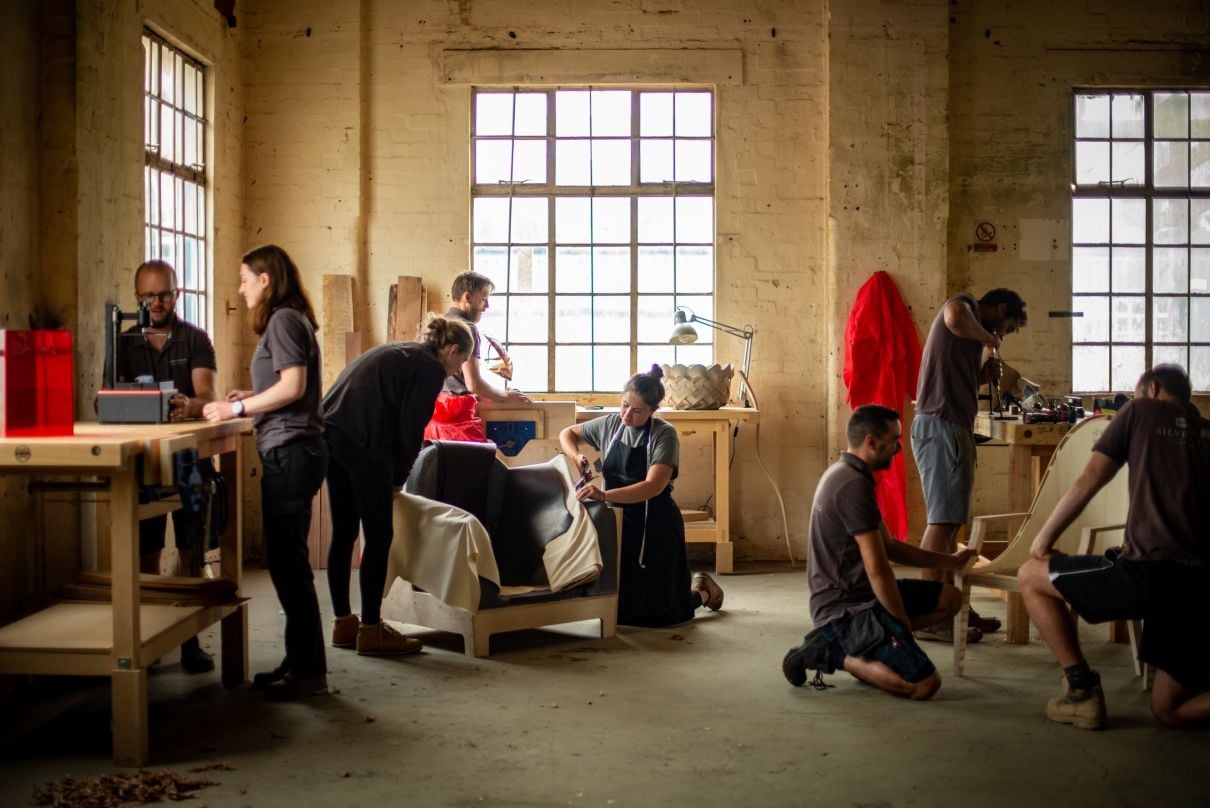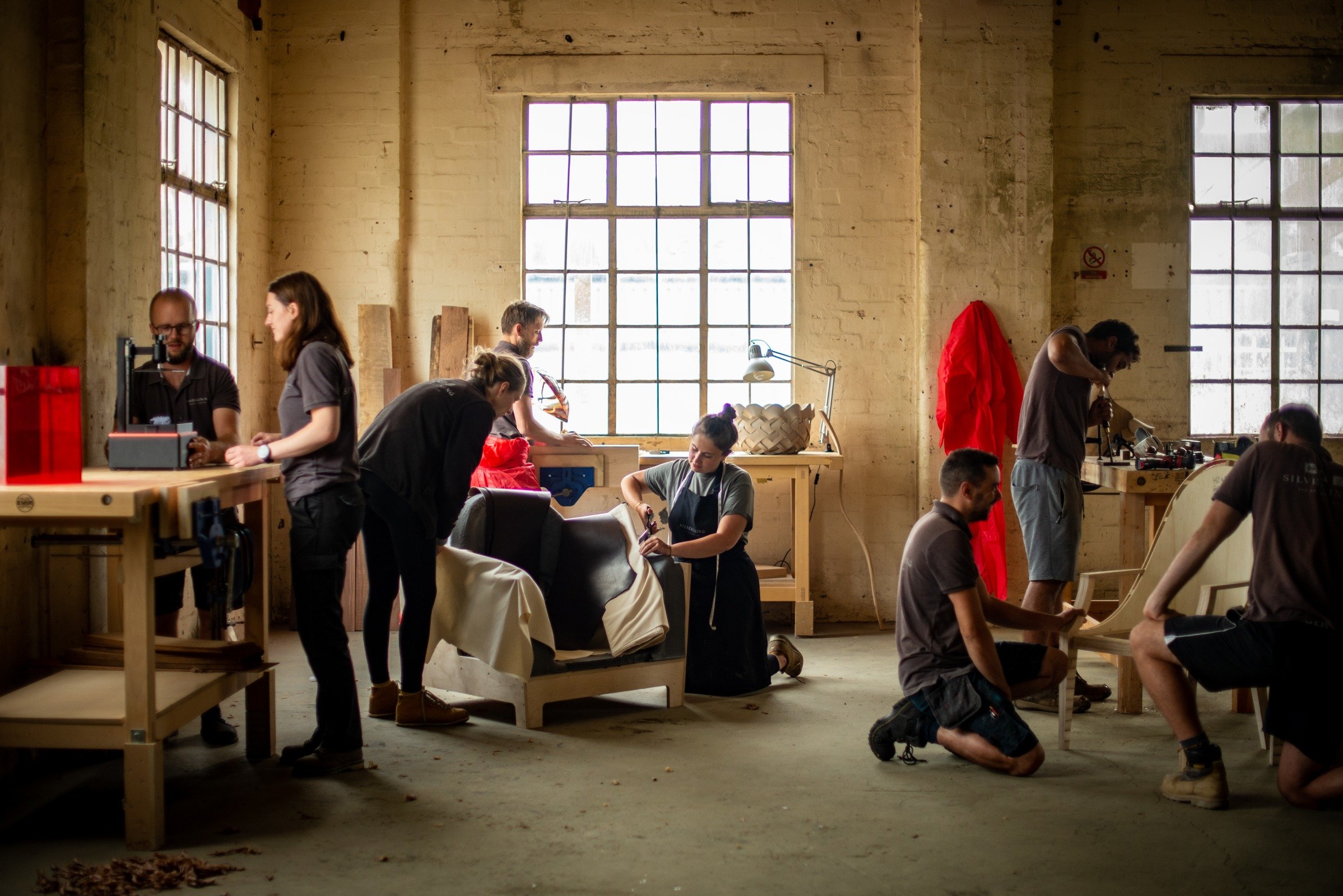Opinion: The Future Is In Your Hands

Mark Boddington, CEO of Silverlining Furniture, on the need for investing in craftsmanship for a sustainable and ethical future.

Imagine reinterpreting timeless hand skills through cutting-edge materials such as carbon fibre, electroconductive ceramics, and self-healing, paper-based Fenix. Picture harnessing the natural properties of abundant, sustainable resources to create unique, never-before-seen forms and finishes.
In recent years, traditional hand skills have been rapidly disappearing, overshadowed by the Western world’s technology-focused, digital transformation. However, a resurgence of interest in these ancient techniques is growing, as they become increasingly rare and coveted by leading design and craft commissioners.
Reviving a craft technique is not enough, though. We must see it grow and evolve in the age of machines. Innovation is the key to preserving these ancient skills, whether it’s by applying traditional techniques to new materials or programming machines with more human-like qualities. Uniformity is dull, and we must strive to keep craftsmanship vibrant and alive.
Changing the perception of craftsmanship and promoting it as a rewarding career choice, especially for those seeking a better work-life balance post-Covid, is one of our biggest challenges. Creating cooperative, supportive environments where makers can turn their skills and passions into careers is also crucial. Bringing together modern makers, entrepreneurs, and marketers creates a culture where craftsmanship is valued, recognised, and commissioned.
Investing in craftsmanship also supports a critical issue in the modern world: sustainability. With growing awareness of environmental and ethical concerns among Generation Z and mature millennials, customers demand sustainably sourced products made from non-animal, local materials with minimal waste. Turning everyday materials into extraordinary pieces through the skill and ingenuity of craftspeople, is what truly sets craftsmanship apart.
Cork is one of such materials that are abundant in nature, renewable, and when used by designers and skilled craftspeople, can be transformed into the most outstanding contemporary designs. It’s naturally light, impermeable to liquids, fire retardant, and highly abrasion resistant. When manipulated by skilled craftspeople, cork can be turned into granules of varying sizes or turned into terrazzo-like pieces, adding a sculptural element to the final product.
Similarly, straw, abundant in nature, can be used to create intricately crafted straw marquetry pieces, while rattan can be transformed into karuun, a sustainable alternative to plastic.
Reviving and preserving ancient skills through modern materials and techniques is crucial for the future of craftsmanship. By changing the perception of craftsmanship and creating supportive working environments, we can turn these skills into fulfilling careers for the next generation. The key to success is innovation and collaboration, as well as embracing sustainable practices and materials. Organisations such as Atelier d’Art de France and QEST are already leading the way in championing craftsmanship, and initiatives such as the Silverlining Academy of Skills are offering opportunities for people to ignite their passion for these timeless techniques.
By investing in craftsmanship, we can not only preserve these valuable skills but also contribute to the wider challenge of creating a more sustainable and ethical future.
Mark Boddington is founder of Silverlining, a furniture maker that uses rare and precious materials.









